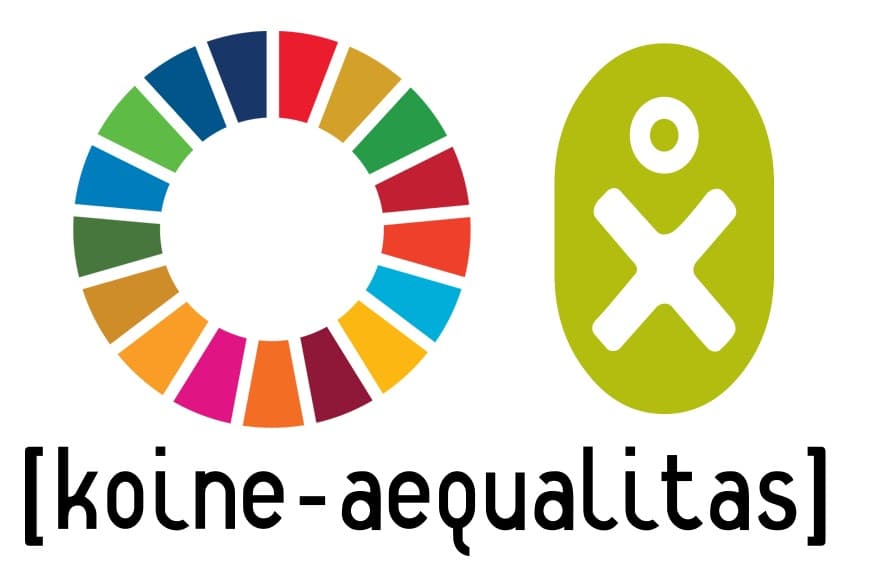2030 AGENDA
WHAT IS THE 2030 AGENDA
On September 25, 2015, the United Nations approved the 2030 Agenda for Sustainable Development, a universal roadmap to end poverty, fight inequality and injustice, address climate change and ensure that all people enjoy peace and prosperity by 2030 under the central motto of “Leave nobody behind”.
This agenda establishes 17 Sustainable Development Goals (SDGs) with 169 goals to be achieved by 2030 and a system of indicators for monitoring. The 17 SDGs are integrated, as they recognize that interventions in one area will affect the results of others and that development must be balanced.
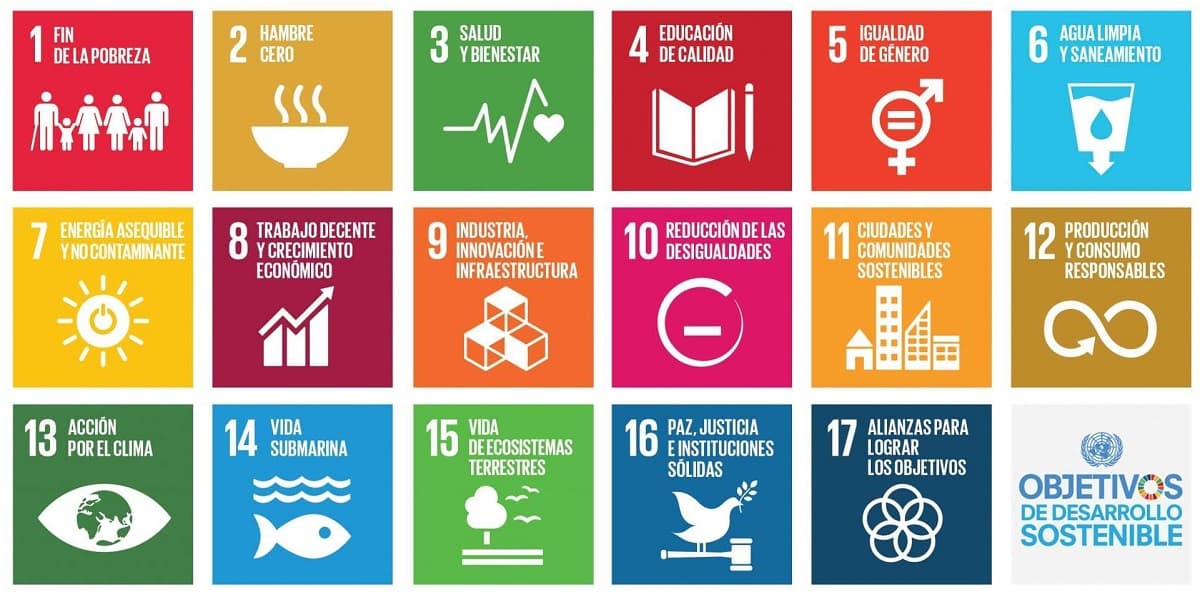
It is a worldwide recognized frame of reference that must be incorporated and adapted as its own by each of the different social agents to promote the transformations necessary for its achievement.
The sustainable development goals are the reformulation of the Millennium Development Goals (MDGs), which between 2000 and 2015, provided an articulated framework for the United Nations to achieve the global improvement goals. But while the MDGs essentially tried to focus development aid on the poorest and most disadvantaged people in some restricted areas, the new goals are now intended to be universal. Therefore, the mere division between “developed” and “developing” countries must be replaced by a more complex and gradual distribution of responsibilities at the international level.
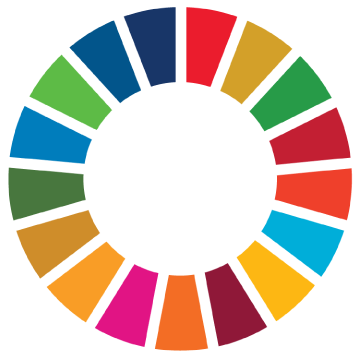
Comprometidos con la Agenda Mundial 2030 de Naciones Unidas
THE 2030 AGENDA AT THE KOINE-AEQUALITAS FOUNDATION
The KOINE-AEQUALITAS Foundation works from a multidisciplinary perspective in the improvement of the quality of life, social development and equal opportunities of citizenship and especially of people in situations of disability / dependence and / or social exclusion.
It is a criteria of the Foundation to contribute to the achievement of these Objectives, so that most of our actions are aligned with any of the 17 SDGs that the 2030 Agenda marks:
ODS 3: GOOD HEALTH AND WELL-BEING
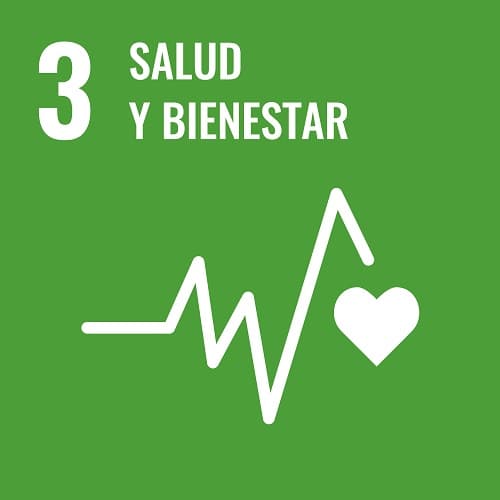
PROYECTO KOINE-AEQUALITAS
THE APPROACH OF GENDER VIOLENCE IN THE HEALTH SERVICE OF NAVARRA, for the Government of Navarra.
INDICADORES
![]() It helps to improve the approach and detection of gender violence in the Navarro Health Service, from primary care to specialized care.
It helps to improve the approach and detection of gender violence in the Navarro Health Service, from primary care to specialized care.
![]() Participation of more than 100 people in the investigation.
Participation of more than 100 people in the investigation.
![]() Compilation of 8 good practices in detecting gender violence in health services.
Compilation of 8 good practices in detecting gender violence in health services.
![]() Proposal for the implementation of a screening test in primary care of SNS-O.
Proposal for the implementation of a screening test in primary care of SNS-O.
ODS 4: QUALITY EDUCATION
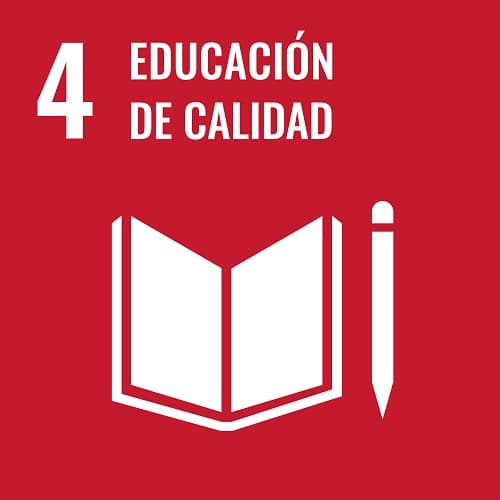
PROYECTO KOINE-AEQUALITAS
JACOBEMPLEO, socio-labor orientation project for people with disabilities in the cultural field for the City Council of Pamplona.
INDICADORES
![]() It helps to ensure equal access to all levels of education and vocational training for vulnerable people.
It helps to ensure equal access to all levels of education and vocational training for vulnerable people.
![]() Completion of comprehensive and individualized training itineraries for the development of social and professional competences in the area of cultural and tourist dynamization.
Completion of comprehensive and individualized training itineraries for the development of social and professional competences in the area of cultural and tourist dynamization.
![]() Creation of a demanding business network of workers with disabilities and training.
Creation of a demanding business network of workers with disabilities and training.
![]() Increase in the number of people with disabilities trained in technical and professional skills to access employment, decent work and entrepreneurship.
Increase in the number of people with disabilities trained in technical and professional skills to access employment, decent work and entrepreneurship.
ODS 5: GENDER EQUALITY
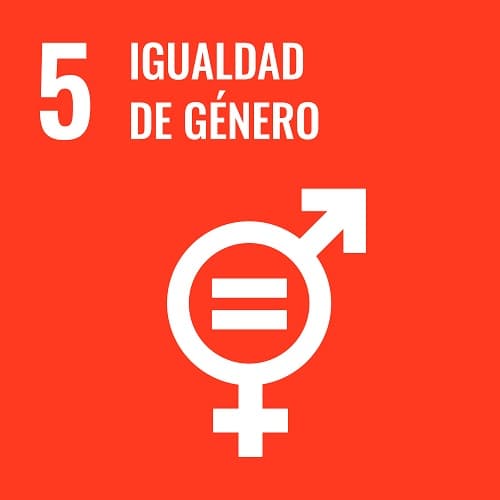
PROYECTO KOINE-AEQUALITAS
GENYOUTH, project for the definition of an investee methodology that promotes the detection of gender violence in minors. (INNOVASOCIAL Project)
INDICADORES
![]() Training of 150 professionals in the design of the participated methodology.
Training of 150 professionals in the design of the participated methodology.
![]() Active participation of 150 minors in the definition and testing of the methodology
Active participation of 150 minors in the definition and testing of the methodology
![]() Creation of a web tool with the methodology favoring the detection process.
Creation of a web tool with the methodology favoring the detection process.
![]() Design of a specific guide that includes the methodology and resources.
Design of a specific guide that includes the methodology and resources.
![]() Compilation of 10 good practices in gender violence detection.
Compilation of 10 good practices in gender violence detection.

PROYECTO KOINE-AEQUALITAS
Development of EQUALITY PLANS for different public and private entities.
INDICADORES
![]() Training and professionalization of more than 40 professionals in the implementation of equality in their organizations.
Training and professionalization of more than 40 professionals in the implementation of equality in their organizations.
![]() Accompaniment to 5 social entities in the development of their gender mainstreaming strategy from the SDG approach.
Accompaniment to 5 social entities in the development of their gender mainstreaming strategy from the SDG approach.
![]() 100% improvement in the provision of services through the implementation of equality.
100% improvement in the provision of services through the implementation of equality.
![]() 100% analysis of situations of inequality or imbalance between women and men in the entities.
100% analysis of situations of inequality or imbalance between women and men in the entities.
![]() Reduction of gender gaps in these organizations.
Reduction of gender gaps in these organizations.
ODS 8: DECENT WORK AND ECONOMIC GROWTH
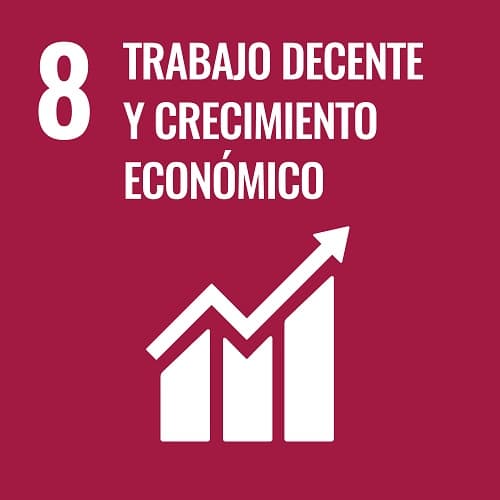
PROYECTO KOINE-AEQUALITAS
STUDY OF NEEDS OF THE AUTONOMOUS WOMEN IN NAVARRA, for the Navarro Employment Service-Nafar Lansare (SNE-NL).
INDICADORES
![]() Support for the development of policies aimed at decent work, entrepreneurship, creativity and innovation.
Support for the development of policies aimed at decent work, entrepreneurship, creativity and innovation.
![]() A diagnosis of the situation of needs of autonomous women in Navarra is made in terms of reconciling family, personal and work life with a gender perspective and SDG approach.
A diagnosis of the situation of needs of autonomous women in Navarra is made in terms of reconciling family, personal and work life with a gender perspective and SDG approach.
![]() The needs detected and proposals made by the participating women are included in a document.
The needs detected and proposals made by the participating women are included in a document.
![]() Dissemination and communication designed for the process of socialization of the document with a public presentation made.
Dissemination and communication designed for the process of socialization of the document with a public presentation made.
![]() Adaptation of public aid regulations based on the results of the study.
Adaptation of public aid regulations based on the results of the study.

PROYECTO KOINE-AEQUALITAS
Entity collaborating with the Navarro Employment Service-Nafar Lansare (SNE-NL) in the FRAMEWORK ORIENTATION AGREEMENT AGREEMENT.
INDICADORES
![]() Almost 300 people attended (people with disabilities and recipients of guaranteed income).
Almost 300 people attended (people with disabilities and recipients of guaranteed income).
![]() 100% of the participants have been activated in the active job search.
100% of the participants have been activated in the active job search.
![]() More than half of the participants have conducted a job interview in an ordinary company.
More than half of the participants have conducted a job interview in an ordinary company.
![]() At least 40% have resumed either formal or non-formal education.
At least 40% have resumed either formal or non-formal education.
![]() 10% have considered creating a business.
10% have considered creating a business.
ODS 9: INDUSTRY, INNOVATION, AND INFRASTRUCTURE
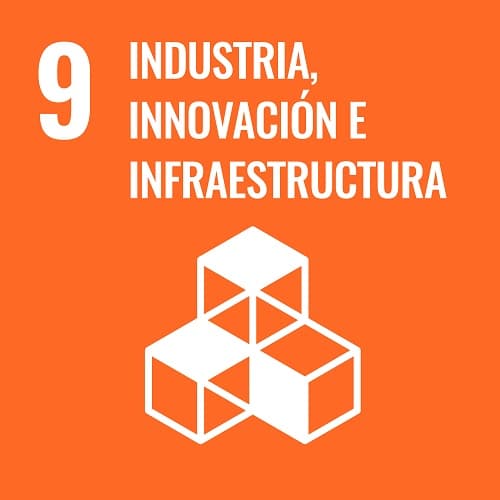
PROYECTO KOINE-AEQUALITAS
Development of STRATEGIC PLANS for different social organizations.
INDICADORES
![]() Training and professionalization of more than 50 professionals in the sustainable and innovative management of their entities.
Training and professionalization of more than 50 professionals in the sustainable and innovative management of their entities.
![]() Accompaniment to 5 social entities in the development of their business strategy from the SDG approach.
Accompaniment to 5 social entities in the development of their business strategy from the SDG approach.
![]() 80% improvement in the provision of services through strategic reflection.
80% improvement in the provision of services through strategic reflection.
![]() It contributes to the modernization of the organizational development model by promoting the adoption of clean and environmentally sound industrial processes and technologies..
It contributes to the modernization of the organizational development model by promoting the adoption of clean and environmentally sound industrial processes and technologies..
ODS 10: REDUCED INEQUALITIES
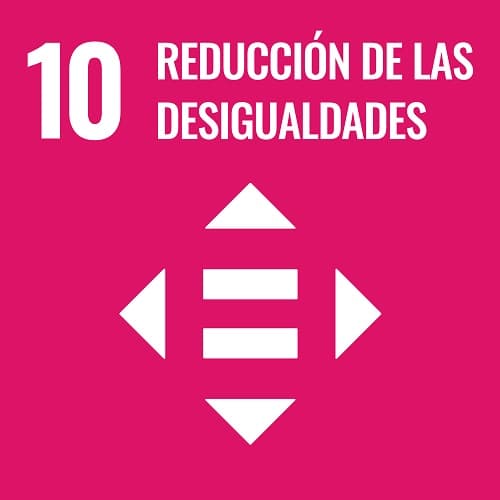
PROYECTO KOINE-AEQUALITAS
TRASTON-ARTE, experimental project of socio-labor orientation through methodology of learning communities. Pamplona City Hall
INDICADORES
![]() Accompaniment to people with disabilities in the field of employment.
Accompaniment to people with disabilities in the field of employment.
![]() Increase in income guaranteeing equal opportunities by promoting the social, economic and political inclusion of all people.
Increase in income guaranteeing equal opportunities by promoting the social, economic and political inclusion of all people.
![]() Assignment of roles, activation in job search, conducting interviews, etc.
Assignment of roles, activation in job search, conducting interviews, etc.
![]() 100% of the participants participate in the active job search system sent the CV to at least 5 job offers.
100% of the participants participate in the active job search system sent the CV to at least 5 job offers.
![]() 50% participation in personnel selection processes
50% participation in personnel selection processes
![]() 100% improvement of self-perception in relation to employment
100% improvement of self-perception in relation to employment

PROYECTO KOINE-AEQUALITAS
DIAGNOSIS ON DIGITAL GAP IN PERSONS OVER 70 YEARS IN NAVARRA, for the Observatory of the Social Reality of the Government of Navarra.
INDICADORES
![]() Conduct a diagnosis of the situation of needs and difficulties of people over 70 in relation to ICT and the Information Society with a gender perspective and SDG approach
Conduct a diagnosis of the situation of needs and difficulties of people over 70 in relation to ICT and the Information Society with a gender perspective and SDG approach
![]() Detection of needs and formulation of proposals
Detection of needs and formulation of proposals
![]() Detection of good practices in digital inclusion
Detection of good practices in digital inclusion
![]() 100% improvement in the understanding of the phenomenon of digital divide by age by agents involved in the process
100% improvement in the understanding of the phenomenon of digital divide by age by agents involved in the process
![]() The development of public policies aimed at digital inclusion and the correction of the digital divide by age is encouraged
The development of public policies aimed at digital inclusion and the correction of the digital divide by age is encouraged
ODS 11: SUSTAINABLE CITIES AND COMMUNITIES
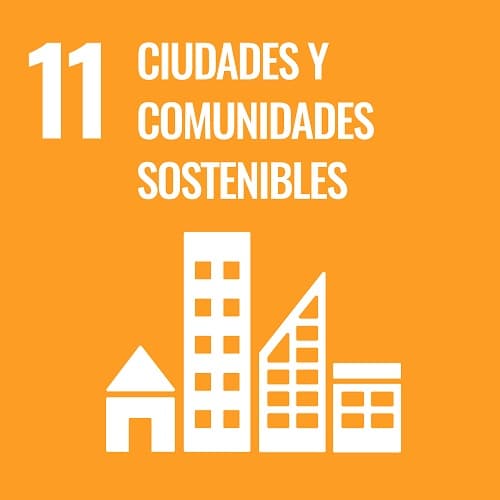
PROYECTO KOINE-AEQUALITAS
JACOB @ CCESS, cross-border project to promote accessibility to the Camino de Santiago. (POCTEFA-INTERREG project).
INDICADORES
![]() Creation of a cross-border network to promote the accessibility of people with disabilities to the Camino de Santiago.
Creation of a cross-border network to promote the accessibility of people with disabilities to the Camino de Santiago.
![]() Creation of 4 accessible sociocultural resources around the Camino de Santiago.
Creation of 4 accessible sociocultural resources around the Camino de Santiago.
![]() Definition of a collaborative work methodology with the participation of 20 institutional and social agents.
Definition of a collaborative work methodology with the participation of 20 institutional and social agents.
ODS 16: PEACE, JUSTICE AND STRONG INSTITUTIONS
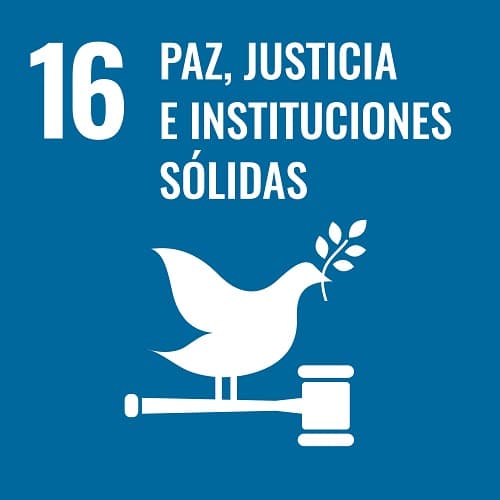
PROYECTO KOINE-AEQUALITAS
SOCIAL DEVELOPMENT FORUM
INDICADORES
![]() 19 entities involved in the project, among which collaborative work is encouraged with the creation of a Network designed for the implementation of innovative projects and with the realization of a forum for meeting between social entities
19 entities involved in the project, among which collaborative work is encouraged with the creation of a Network designed for the implementation of innovative projects and with the realization of a forum for meeting between social entities
![]() Training of more than 100 professionals through the provision of training capsules in “Living Lab” methodologies, Social Impact Measurement, Social Innovation and Gender Mainstreaming, and through participatory meeting sessions with exchange of experiences between professionals.
Training of more than 100 professionals through the provision of training capsules in “Living Lab” methodologies, Social Impact Measurement, Social Innovation and Gender Mainstreaming, and through participatory meeting sessions with exchange of experiences between professionals.
![]() Enabling a voluntary support channel to supervise the elaboration of projects and promote an innovative perspective to them in which they collaborate. 70% of the participants, through the review of projects..
Enabling a voluntary support channel to supervise the elaboration of projects and promote an innovative perspective to them in which they collaborate. 70% of the participants, through the review of projects..
![]() Realization of social mentoring of individual intervention from the perspective of human rights and social peace.
Realization of social mentoring of individual intervention from the perspective of human rights and social peace.
![]() 65% of the participants have launched or will soon be doing collaborative projects
65% of the participants have launched or will soon be doing collaborative projects
ODS 17: PARTNERSHIPS
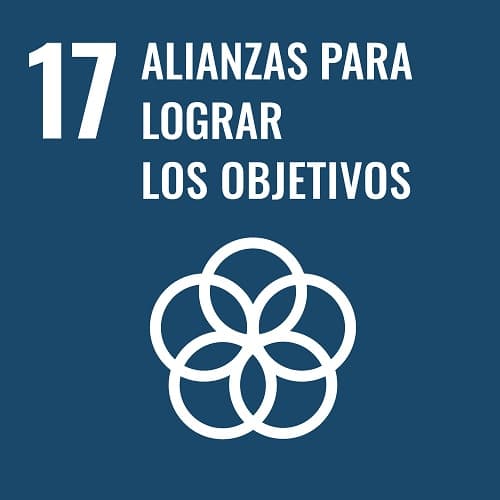
PROYECTO KOINE-AEQUALITAS
GIRA MUJERES, a female entrepreneurship project in partnership with Coca Cola Foundation and the social entity Dona Activa.
INDICADORES
![]() Personal and professional training of women to improve their employability.
Personal and professional training of women to improve their employability.
![]() Personal and collective female empowerment is favored through support for business design.
Personal and collective female empowerment is favored through support for business design.
![]() Generation of strategic alliances between civil society and social entities.
Generation of strategic alliances between civil society and social entities.

PROYECTO KOINE-AEQUALITAS
PROJECT INCLUSION WITHOUT BORDERS. Improved capacity of the FICE-Bulgaria organization to provide high quality training for adults, in accordance with current social problems (ERASMUS +).
INDICADORES
![]() Increase knowledge, skills and competencies of training staff.
Increase knowledge, skills and competencies of training staff.
![]() Support in the incorporation of an effective model for quality management of training activities.
Support in the incorporation of an effective model for quality management of training activities.
![]() 80% improvement of the team’s foreign language skills.
80% improvement of the team’s foreign language skills.
![]() Increase in the internalization strategies of the organization
Increase in the internalization strategies of the organization
HOW CAN THE KOINE AEQUALITAS FOUNDATION HELP YOU FOR YOUR ORGANIZATION TO CONTRIBUTE TO ADVANCING IN THE 2030 AGENDA?
The new global framework proposed by the 2030 Agenda implies that civil society is a lever for change, contributing as a transforming agent and as a catalyst for the participation and awareness of society in the cycle of public policies and in the implementation of solutions Concrete and innovative.
In fact, many organizations regularly develop programs or initiatives related to different SDGs: they work against poverty, in the reduction of inequalities, in the accompaniment of vulnerable groups, in the fight against climate change, etc. which, in turn, has led to a great experience with a high potential for knowledge and know-how.
In any case, beyond the formality of support for the objectives and their recognition, incorporating them into our organizations requires a conscious and leading process that we must provide with time and resources to bring it to fruition. This process should involve, on the one hand, an analysis of reality, of relationships, of spaces for collaboration, and on the other, a reflection and reformulation of our priorities, practices and ways of doing in the light of the SDGs. Systematizing the process, so that an organization can collaborate in the implementation of the 2030 Agenda, it should go through the following milestones:
1st: Know, understand and deepen the Sustainable Development Goals.
2nd: Identify the SDGs on which you want to work.
3rd: Establish goals and indicators at the organizational level.
4th: Develop a set of congruent actions in the day to day of the organization.
5th: Make public the actions developed and the impacts achieved.
Precisely one of the key points for the success of this Agenda is the ability to identify and measure progress or setbacks in relation to the different objectives. In this regard, 232 evaluation indicators have been established and then implemented at international, national and local levels.
Along these lines, one of the Foundation’s lines of action consists of the support, advice and specialized consultancy of all types of public and private entities that wish to align their strategy and projects with the 17 SDGs.
For this, we maintain a network of regular partners with whom we work permanently in the development of projects at national and European level, and with which we have established a work methodology based on respect, excellence, professional quality and in mutual satisfaction. Thus, from the Foundation we have promoted and directed innovation projects in collaboration with other associations, foundations, universities and other social organizations in order to generate greater knowledge in the development of consulting projects.
We have an experienced multidisciplinary team and a dossier of successful experiences that we make available to interested organizations.
TESTIMONIES OF OUR SUPPORT IN THE MATTER
ARETÉ ACTIVA Organization, Strategy and People Consultant.
After years of working in parallel with different organizational and quality management systems, as well as with commitments for development at all levels (United Nations, Equal Opportunities, Cooperation …), it has been of great help to be able to include all the I work under the global umbrella of the SDGs in a simple and agile way in three simple steps (checking, prioritizing objectives, action plan). It has allowed us internally to value work and business commitment, the participation of the entire team and areas of the company in its construction, and share a roadmap aligned with global guidelines from now on. Thank you!
Elizabeth Purroy, Equality Projects Director.
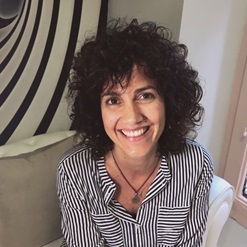
TASUBINSA, Non-profit organization for Intellectual Disability and Development.
“At Tasubinsa we have adhered to the SDGs, aligning them with our Strategic Plan 2021-2023, identifying the most relevant action points for the organization and establishing indicators to measure all the actions we develop in the different objectives, with the aim of continuing to work on the achievement of our mission of social and labor inclusion of people with disabilities”.
Elena Mugueta Echarte, Director of Systems Management.
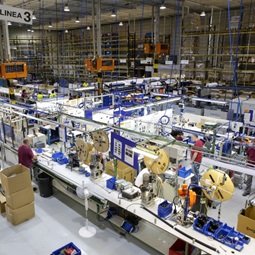
AMIMET, social initiative of social Inclusion of people with disability organization
“It seemed like a very important and necessary process for AMIMET. It allowed us to make visible many of the things we do on a daily basis, which we normalize, but which contribute without realizing it to promoting the SDGs, also reflecting other things on which we must improve and continue working. We are fortunate that the growth of the entity is important for the entire team and that we work in line with the SDGs, in the way that each job allows”.
Maria Enrique, the psychologist participating in the process.
.

2030 AGENDA IN SPAIN
The Government of Spain is one of the 192 signatory countries of the 2030 Agenda. Consequently, on June 29, 2018, the Council of Ministers approved the Action Plan for the Implementation of the 2030 Agenda for Sustainable Development, drawn up through an open, participatory and transparent process and with the interlocution of all social actors and territorial administrations.
The governance of the Agenda rests on the recent creation of a High Commissioner in the Presidency of the Government, of a Consultative Sustainable Development Council, of the articulation between the three levels of public administrations and the commissioning of a Commission Mixed Congress-Senate for follow-up. In addition, a Secretary of State has been created specifically for the 2030 Agenda.
Of particular importance is the inclusion of the commitments and advances of the autonomous communities, of the local governments through the strategies agreed within the FEMP and of the rest of the actors, civil society, companies, unions, universities and professional associations.
AGENDA 2030 IN NAVARRA
Navarre institutions have joined the 2030 Agenda and the Government of Navarra is aligning its social, economic and environmental policies with the 17 SDGs.
In the following link, and in order to support and disseminate knowledge, you can check the progress in achieving the SDGs in our community through a series of graphs and indicators: https://ods-agenda2030.navarra.es/
